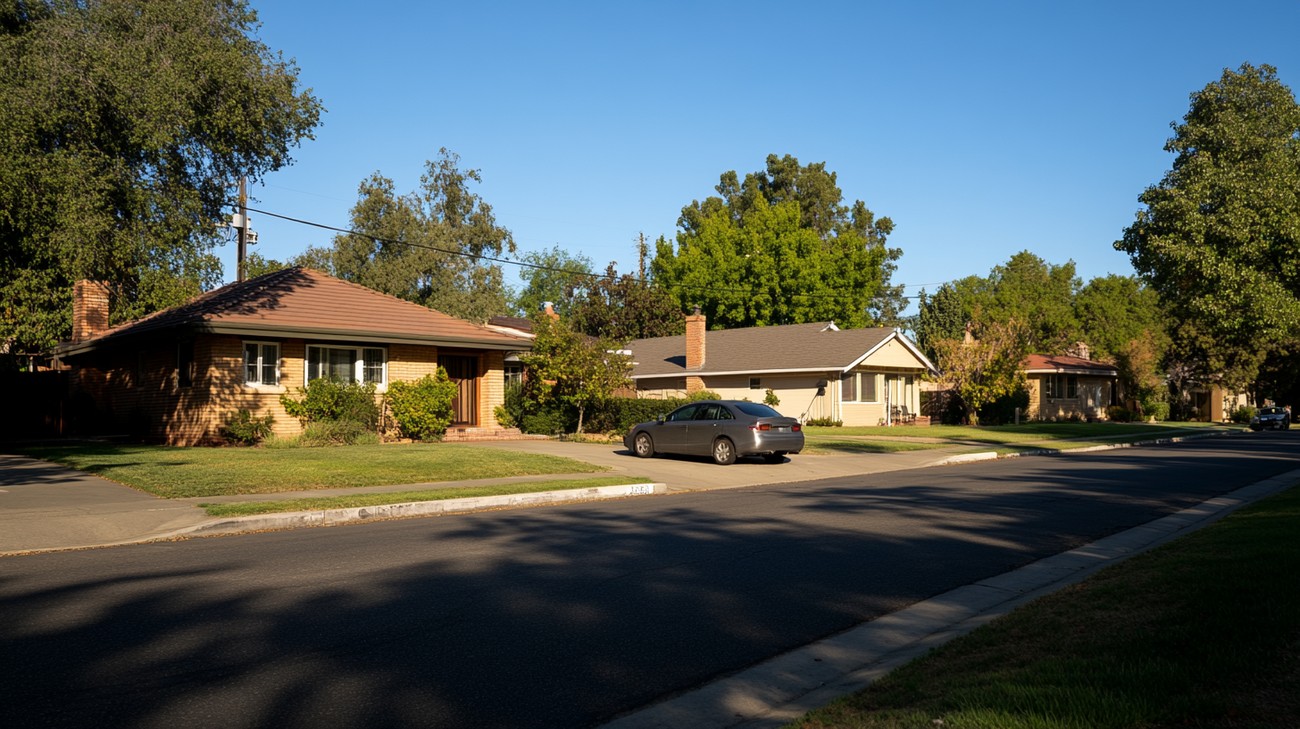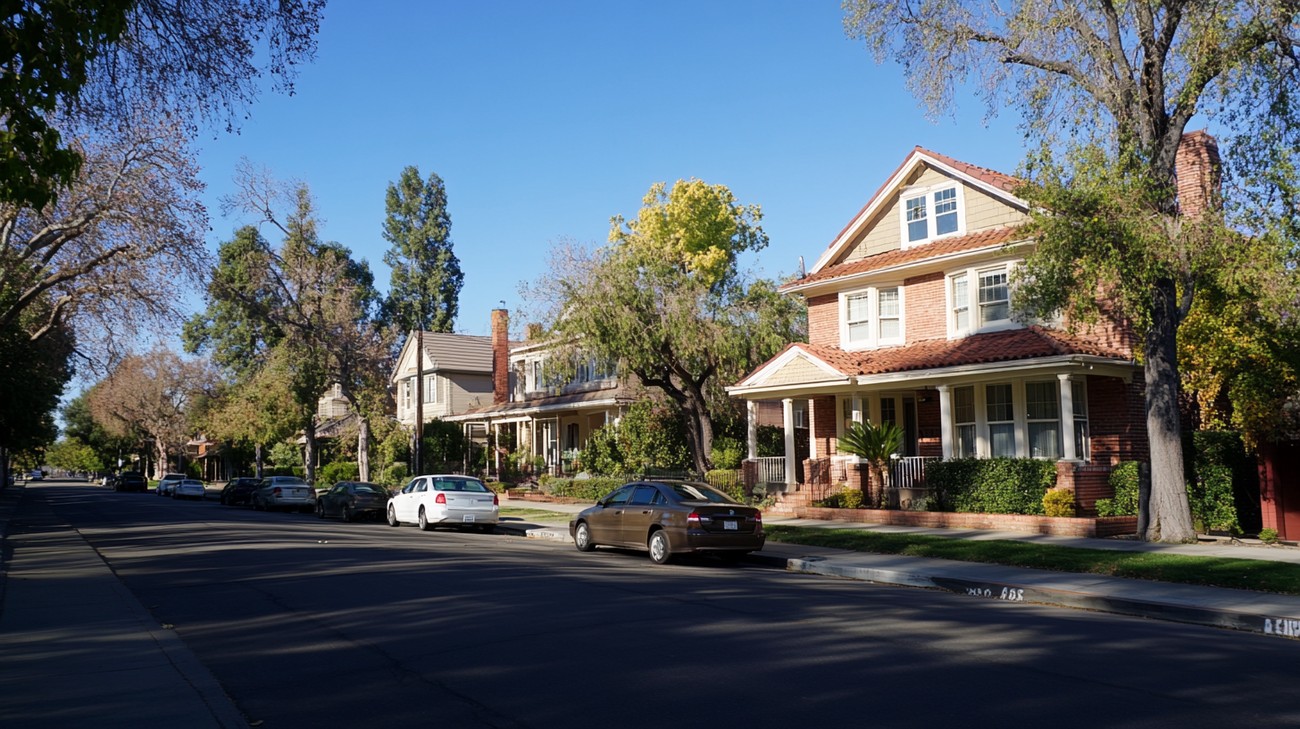Give Us A Call Today
(916) 237-9457Selling Inherited Homes: Price Right in California
Brandon Evans on March 13, 2025When you inherit a property, it's not just an emotional journey but also a complex financial decision, especially if you're planning to sell it. Pricing your inherited home correctly is crucial to attracting potential buyers and maximizing your sale price. In California, where the real estate market can vary dramatically from one neighborhood to another, setting the right price on an inherited home requires a careful approach. This detailed guide will walk you through the key steps and considerations for pricing your inherited home in California.
Understanding the California Real Estate Market
Before setting a price, it's essential to understand the dynamics of the California real estate market. Here are some factors that can influence your pricing strategy:
- Location: California's real estate market varies by region. Property values in urban areas like San Francisco or Los Angeles differ significantly from those in rural areas.
- Market conditions: Whether it’s a buyer's or a seller's market can greatly affect how you price your home. Keep track of trends such as the average days on market (DOM) and selling prices of comparable homes.
- Economic indicators: Interest rates and economic forecasts can also influence home prices. A booming economy might mean higher prices, while an economic downturn could depress them.
Evaluating the Property’s Condition
The condition of your inherited property plays a vital role in its valuation. Here are some aspects to consider:
- Age of the property: Older homes may require more updates or repairs before going on the market.
- Upgrades and renovations: Recent improvements can increase a home’s value. Make a list of any updates done in recent years.
- Need for repairs: Identify any critical repairs needed and consider whether to address these issues before selling or adjust the price accordingly.
Factors Influencing Your Pricing Decisions
Here’s a rundown of what could influence your pricing strategy:
- Local comparable sales (comps)
- The home’s unique features and condition
- Your timeline for selling
- Current housing market trends
Setting the Right Price
1. Conduct a Comparative Market Analysis (CMA)
A CMA involves looking at the prices of similar homes that recently sold in the same area. Factors to consider in your CMA should include:
- Size: Compare homes of similar square footage.
- Location: Focus on homes in the same neighborhood or school district.
- Condition: Try to compare with homes in similar condition.
2. Hire a Professional Appraiser
A professional appraisal can be a worthwhile investment to get an objective opinion of the value of your home. This is particularly useful if the home has unique features or there hasn’t been much sales activity in your area.
3. Adjust for Market Conditions
You may need to adjust your expectations based on whether it’s a buyer’s or seller’s market:
- In a buyer’s market, homes tend to sell more slowly, and buyers have more negotiating power.
- In a seller’s market, homes sell faster, and sellers may receive multiple offers over the asking price.
Preparing the Home for Sale
To achieve the best possible price, presenting your home attractively is key. Consider these steps:
- Declutter and depersonalize: Clearing out personal items and clutter can help potential buyers visualize themselves in the home.
- Staging: Staging the home professionally can enhance its appeal significantly.
- Repairs and improvements: Basic repairs and cosmetic improvements (like painting or garden work) can boost the property's value without requiring a large investment.
Marketing Your Inherited Home
Effective marketing can help you reach potential buyers and get a better price. Key strategies include:
- High-quality photos and videos: Invest in professional real estate photography to showcase your home in the best light.
- Online listings: List your home on popular real estate websites and utilize social media to widen your reach.
- Open houses and private showings: These can provide prospective buyers with a firsthand look at the property.

Frequently Asked Questions
2. What initial steps should I take to price my inherited home?
Start by assessing the overall condition of the home. Consider hiring a professional appraiser to give you a detailed current market value. Additionally, reviewing similar recently sold properties (comps) in the area can provide a good baseline on pricing expectations.
3. How do property values in California affect the pricing of an inherited home?
California’s diverse real estate markets mean that property values can significantly vary by location, community amenities, and local economic conditions. Understanding regional market trends is key to determining an effective pricing strategy for an inherited home.
4. What is the impact of the home's condition on its price?
The condition of the home directly impacts its market value. Homes that are well-maintained and feature recent updates tend to fetch higher prices. Conversely, homes that require substantial repairs might need to be priced lower to attract buyers interested in renovation opportunities.
5. Should I make improvements to the inherited home before selling?
Deciding whether to make improvements should be based on the current state of the home, the cost of proposed upgrades, and the potential return on investment. Minor repairs that enhance curb appeal can be worthwhile, but extensive renovations might not always lead to proportional increases in sale price.
6. How do I use comparable sales to price the home accurately?
Look at similar homes in the area that have sold recently. Key factors to compare include square footage, number of bedrooms and bathrooms, lot size, condition, and any unique features. Adjust your pricing based on how your property stacks up against these comps.
7. What should I know about current real estate market trends in California?
Be aware of whether the market is leaning towards buyers or sellers, as this impacts pricing strategies. In a seller's market, homes might be priced higher due to increased demand. Conversely, in a buyer's market, you might need to price the home more competitively to attract offers.
8. How does timing affect the sale price of a home?
Real estate markets can be seasonal in many areas of California. Typically, the market heats up in the spring and summer when buyers are more inclined to shop for new homes. Pricing might need adjustment if you are selling in an off-peak season like late fall or winter.
9. Can emotional attachment influence the pricing of an inherited home?
While it’s natural to feel emotionally attached to a family home, it is essential to remain objective when setting a price. Overvaluing a home based on personal feelings rather than market conditions can deter potential buyers and prolong the sale process.
10. What legal considerations should I keep in mind when pricing an inherited home?
Ensure that all estate matters, such as the confirmation of the executor and the settlement of any outstanding debts secured by the property, are resolved before finalizing the sale price. Consulting with a real estate attorney can provide guidance tailored to the specifics of estate resolution in California.
11. Should I consider hiring a real estate agent?
A qualified real estate agent who knows the local market can be a valuable resource in pricing and selling an inherited home. They can provide insights on the local market, help identify appropriate comps, and manage negotiations with potential buyers.
12. How can online real estate tools and platforms help in pricing my home?
Online tools like Zillow’s Zestimate, Redfin Estimate, and others provide preliminary estimates of what a home might be worth based on public records and algorithms. These tools can offer a starting point but should be supplemented with professional appraisals and realtor insights for accuracy.
13. Are there tax implications I should consider when pricing the home?
Understanding the tax implications of selling an inherited property, including potential capital gains tax, is important. Pricing strategies might be influenced by these implications. It’s advisable to consult with a tax advisor who can offer more specific advice depending on your situation.
14. How should I respond if my initial pricing strategy is unsuccessful?
Be prepared to adjust your pricing if the market response is tepid. Monitoring feedback from showings and staying informed about any shifts in the local market are key to reacting appropriately. Flexibility can help secure a sale without significant delays.
15. What are final considerations before finalizing the listing price?
Prior to setting the final price, revisiting your complete financial calculations, understanding market trends, reassessing the home’s condition following any repairs or improvements, and considering any recent comps could result in adjustments. Confirming your strategy with a real estate professional can also ensure that the chosen price reflects both your financial goals and market realities.

Pros & Cons
Pros
Accurate Pricing Attracts Serious Buyers
- Pro: Setting the right price for an inherited home can attract genuine buyers who are ready to close the deal, minimizing the time the property stays on the market.
- Pro: Accurately priced homes can lead to multiple offers, potentially increasing the final sale price due to bidding wars.
Reflects Current Market Conditions
- Pro: Pricing based on the current market analysis ensures the price reflects what buyers are willing to pay now, not based on outdated or emotional valuations.
- Pro: This method helps in adjusting the price to better match local market demand and economic states, which can fluctuate especially in diverse markets like California.
Helps in Quick Closure of Estate Settlements
- Pro: Properly priced homes sell faster, which is crucial in estate settlements to distribute assets in a timely manner.
- Pro: This avoids prolonged expenses such as ongoing maintenance costs, property taxes, and other carrying costs associated with keeping the property.
Reduces Risk of Appraisal Issues
- Pro: When a home is priced in alignment with the market, it is more likely to appraise at the selling price, crucial for buyers relying on mortgage financing.
- Pro: This mitigates the risk of deals falling through due to appraisal shortfalls where the buyer can’t secure financing based on an inflated price.
Cons
Complex Market Analysis Required
- Con: Determining the right price requires a comprehensive understanding of the local real estate market, including recent sales of comparable properties.
- Con: Sellers may need to invest in professional appraisal services or real estate expertise, which can be costly and time-consuming.
Emotional Detachment Needed
- Con: Pricing an inherited home often requires detaching from sentimental value, which can be challenging for many sellers.
- Con: This emotional disconnection might lead to feelings of guilt or regret, particularly if the home has been in the family for generations.
Risk of Underpricing
- Con: Without proper market knowledge, there's a risk of setting the price too low, potentially leaving money on the table.
- Con: Underpricing can lead to a quick sale, but might cause dissatisfaction if sellers later realize they could have received more.
Frustration Over Market Fluctuations
- Con: Real estate markets can change rapidly; a price set when the market analysis is done might not be reflective by the time the property is sold.
- Con: This could necessitate continuous monitoring and adjustment of the price, adding to the complexity and stress of the selling process.
Potential Delay If Overpriced
- Con: Setting the price too high can lead to extended time on the market, which might reduce the property’s overall appeal to buyers as it becomes "stale."
- Con: High pricing can deter potential buyers, particularly in competitive markets where other sellers might offer more realistically priced alternatives.
Costs Associated with Economic Valuation
- Con: Pricing correctly often requires professional valuation and potentially legal consultation, especially if there are complex inheritances or multiple stakeholders.
- Con: These professional fees can add up and might not be recouped, especially if the market valuation dictates a lower than expected selling price.
Using a combination of professional guidance and comprehensive market analysis can mitigate many of the cons listed above while capitalizing on the pros, helping to ensure the inherited home in California is priced appropriately for sale.

Summary
Determining the Right Price Point
When pricing an inherited home in California, it's crucial to consider the current market conditions and comparable sales in the neighborhood. Potential sellers should engage a professional appraiser or a real estate agent who has experience in the area to obtain an accurate valuation. This approach ensures that the home is neither underpriced, missing out on potential revenue, nor overpriced, which might deter prospective buyers and prolong the sale process. Understanding these market dynamics and setting a competitive asking price can significantly enhance the likelihood of a timely and profitable sale.
Consideration of Emotional and Financial Factors
The process of selling a home inherited in California often carries emotional weight, which can influence pricing decisions. However, it's important for sellers to maintain objectivity, focusing on the financial aspects to optimize outcomes. Consulting with financial advisors and tax professionals is advisable to understand any implications related to inheritance taxes and capital gains. Such informed strategies promote a balance between emotional attachment to the property and the practical financial benefits of the sale, ensuring that pricing reflects both realistic market expectations and personal circumstances.
Utilization of Online Resources and Expert Advice
In the digital age, a wealth of online resources is available to assist sellers in pricing an inherited home accurately. Tools such as online valuation models, real estate websites, and market analysis reports provide initial estimates that can be refined with the expertise of local real estate professionals. Engaging with community forums and local real estate meetings can also offer insights into the nuances of the California real estate market, enhancing sellers' understanding of how to effectively price their property. By leveraging both technology and expert advice, sellers can confidently set a price that attracts buyers while reflecting the true value of their inherited home.
Get Your Fair Cash Offer: Start Below!
We buy houses in any condition -- no commissions or fees and no obligation whatsoever. Start below by giving us a bit of information about your property or call 916-237-9457.
Sacramento, CA 95825
Why Us
- No appraisal or home inspection.
- No repairs needed, as-is sale.
- No fees, taxes, or commissions
- Just one walkthrough.
- Close date of YOUR choice.
© 2025 Sell Your Home For Cash Sacramento. All Rights Reserved.We are a real estate solutions and investment firm that specializes in helping homeowners get rid of burdensome houses fast. We are investors and problem solvers who can buy your house fast with a fair all cash offer.
Sell Your Home For Cash Sacramento rated 4.9 / 5 based on 50 reviews.